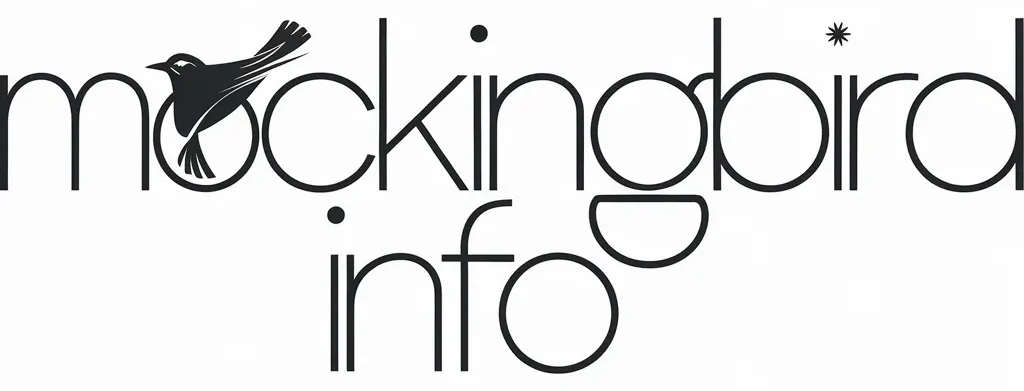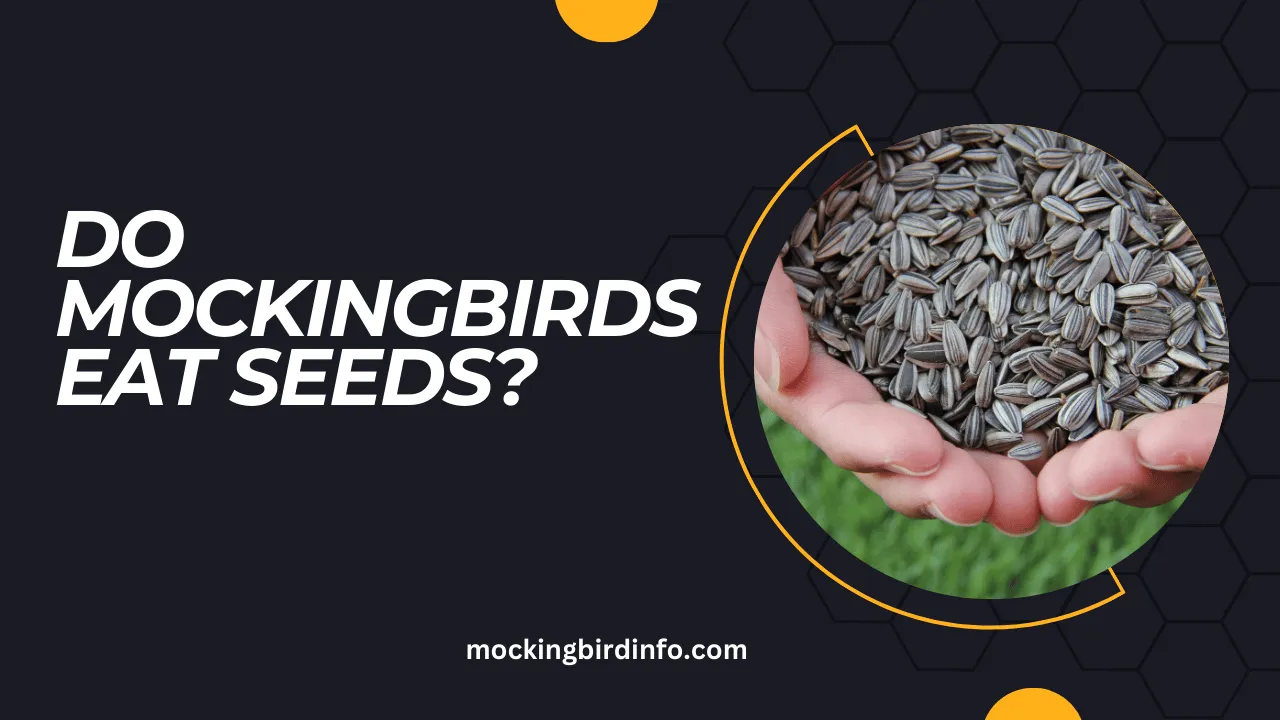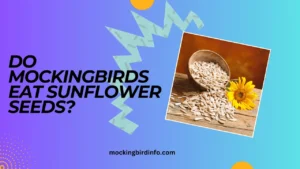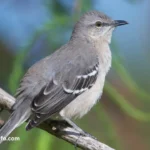Have you ever wondered what fuels the nonstop energy of the northern mockingbird, a bird known for its symphonies that fill the morning air? While most people are familiar with the mockingbird’s wide-ranging calls and songs, fewer know about its dietary habits.
The answer to the question, “Do mockingbirds eat seeds?” is more nuanced than one might think. While insects are their primary source of sustenance, seeds are a critical part of their diet, especially during specific times of the year.
Understanding the broader diet of a mockingbird is more than just a matter of curiosity; it offers valuable insights into how we can support wildlife in our own backyards.
By knowing what these birds eat and why, bird enthusiasts and gardeners alike can create a more supportive environment. Seeds, which might seem like an unlikely dietary choice for an insect-eating bird, play a surprisingly essential role in sustaining them when insects are scarce.
In this comprehensive exploration, we will delve into how mockingbirds incorporate seeds into their diet, the types of seeds they consume, their foraging habits, and the nutritional and ecological significance of these choices.
By the end, you’ll have a newfound appreciation for the adaptability and resourcefulness of this captivating bird.
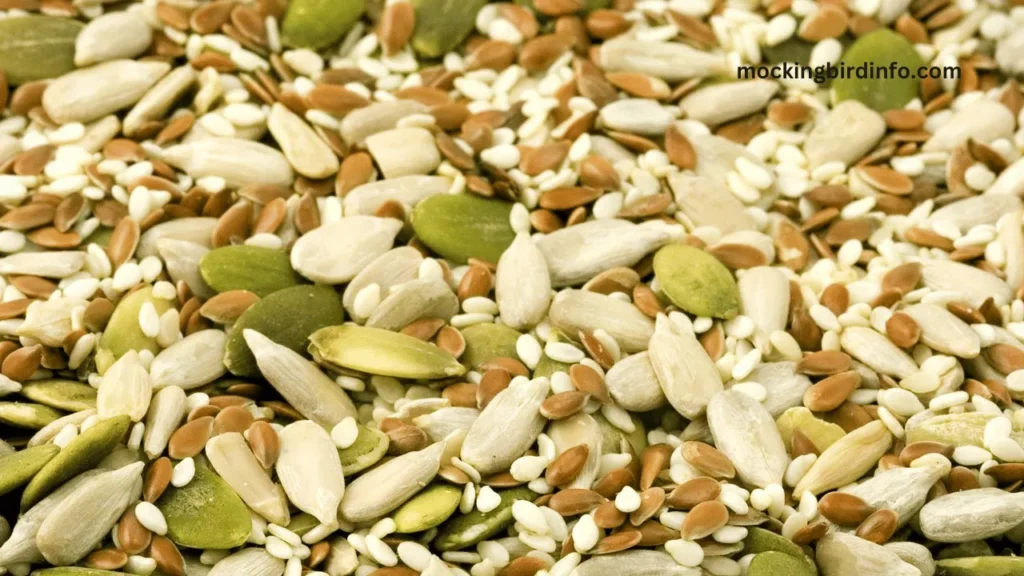
Contents
Factors Influencing Seed Consumption
Seasonal Availability: Mockingbirds primarily consume insects such as beetles, grasshoppers, and ants. However, when winter sets in and insect populations dwindle, mockingbirds shift their diet to include more plant-based foods, especially seeds.
This seasonal adaptability allows them to maintain their energy levels during times when their preferred diet is not readily available.
Habitat: A mockingbird’s habitat plays a major role in its diet. Urban and suburban areas provide a different array of food sources compared to rural landscapes.
In cities and towns, mockingbirds may forage in gardens, parks, and even backyards where bird feeders are present. In contrast, those living in less populated areas may rely on natural sources like wild fruit seeds and weed seeds.
Individual Variation: Not all mockingbirds follow the same diet. Individual birds may show unique preferences based on their life experiences, age, and environmental exposure.
Older, more experienced birds might be more adept at foraging for seeds from different plants or exploring novel sources like bird feeders, while younger birds may stick to the basic food sources they first learned to seek out.
Types of Seeds Consumed
Plant Seeds: Wild plants, shrubs, and fruit-bearing trees provide an abundant source of seeds that mockingbirds consume, especially when they can’t find their usual insect prey.
They favor seeds from berries and fleshy fruits, such as mulberries and elderberries, which are often more accessible during colder months.
These plant seeds not only offer a source of food but also help the bird meet its energy requirements when protein-rich options like insects are scarce.
Birdseed: Mockingbirds can also be attracted to bird feeders stocked with common seeds like sunflower seeds, millet, and cracked corn.
Although they are not as frequent visitors as other seed-eating birds, they will take advantage of these feeders, especially in urban and suburban settings where human activities provide supplementary food sources.
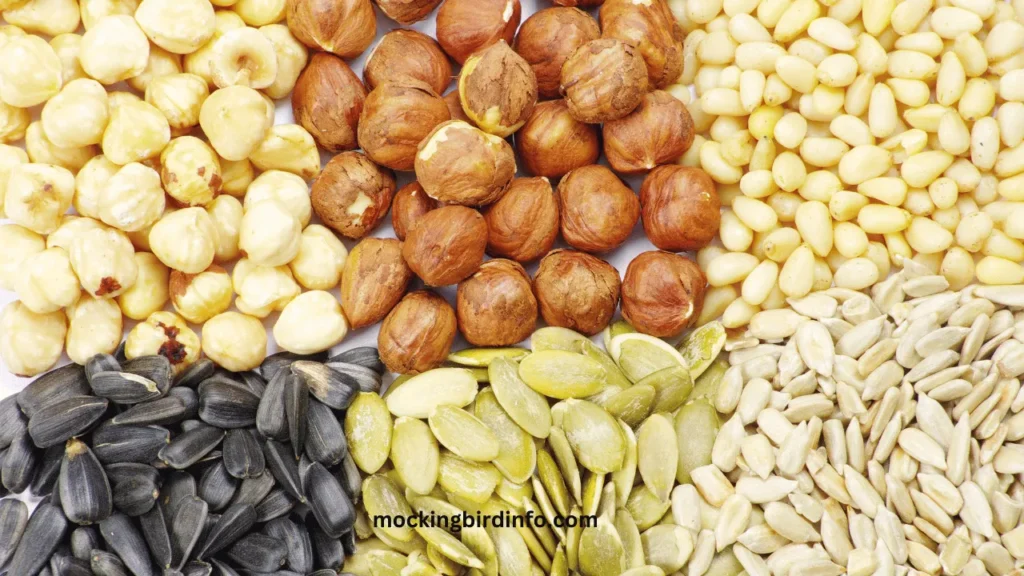
Foraging Behavior
Seed-Cracking Techniques: Mockingbirds exhibit creative foraging behavior when it comes to seeds. They might use their sharp beaks to peck persistently at tougher seed coatings or drop larger seeds onto hard surfaces to crack them open.
This adaptability demonstrates their resourcefulness and highlights their ability to learn new techniques based on environmental opportunities.
Seed Dispersal: Mockingbirds are not just consumers of seeds; they contribute to the ecological cycle through seed dispersal. After eating fruit, the seeds often pass through their digestive systems and are excreted elsewhere, enabling new plants to germinate and grow in different areas.
This process plays an important role in maintaining plant biodiversity and helps spread various species of shrubs and trees.
Nutritional Value of Seeds
Energy Source: Seeds are rich in calories, offering mockingbirds a concentrated source of energy that helps them survive during periods when insects are scarce.
These calories are vital for maintaining their high levels of activity—mockingbirds are known for their territorial displays, singing, and aggressive defense against intruders, all of which require significant energy.
Essential Nutrients: Beyond just energy, seeds also contain fats, proteins, and essential minerals that support the bird’s health. Fats provide long-lasting energy, while proteins are critical for tissue repair and growth.
Minerals found in seeds, such as calcium and magnesium, are essential for bone health and proper bodily functions, ensuring the bird remains strong and agile.
Impact on Ecosystems
Seed Germination: One of the overlooked roles mockingbirds play in their ecosystems is facilitating seed germination. While many seeds are broken down in their digestive tracts, some pass through undamaged and may even benefit from this process.
The slight abrasion and passage through the bird’s system can help break down the seed’s tough outer coating, making it more likely to sprout when it reaches the soil.
Competition with Other Birds: Mockingbirds are known for their territorial behavior, which extends to food sources. When competing for seeds at bird feeders or in shared environments, mockingbirds can be aggressive, often scaring off smaller birds.
This competition can impact local bird populations and highlights the importance of having diverse food sources to support different bird species in the same habitat.
Conclusion
Mockingbirds are more than just remarkable songbirds; they are versatile survivors whose diet shifts with the seasons and their surroundings.
While insects remain their primary food source, seeds become crucial during colder months and in habitats where insects may be harder to find.
This adaptation not only supports their survival but also influences their role in the ecosystem as seed dispersers and competitors.
By understanding the role seeds play in their diet, we can better appreciate the balance these birds maintain between their energetic displays and resourceful foraging.
Supporting mockingbirds by providing a variety of seeds and plants can enrich local biodiversity and help these birds thrive year-round.
FAQs
1. Do mockingbirds eat sunflower seeds?
Yes, mockingbirds can eat sunflower seeds, especially during times when other food options are limited or unavailable.
2. Why do mockingbirds include seeds in their diet?
Seeds provide important nutritional value, offering energy and essential nutrients during periods when insects are scarce, such as in winter.
3. Are mockingbirds picky about the seeds they eat?
While they may have preferences, mockingbirds are generally opportunistic and will consume a variety of seeds, particularly those from berries, fruits, and bird feeders.
4. Do mockingbirds visit bird feeders often?
They may not be as frequent visitors as seed-specialist birds like cardinals, but they will stop by bird feeders if suitable seeds like sunflower or millet are available.
5. What other foods do mockingbirds eat?
Besides seeds, mockingbirds eat insects, berries, and small fruits as part of their varied diet.
6. Do mockingbirds help in seed dispersal?
Yes, they contribute to seed dispersal by eating fruit and excreting seeds elsewhere, aiding in the spread and germination of new plants.
